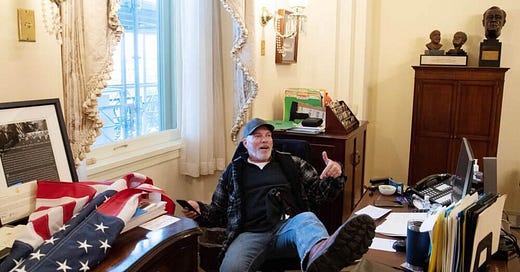Hi all, Ari here. Thanks for being a subscriber. Here’s my Friday post.
The “Anniversary”
America marked January 6 this week. There are many ways to reflect on that day, and across the media, we again saw those initially shocking photos and videos. There’s value to bearing witness to history—especially as many lie about it—even as repetition can dull how …
Keep reading with a 7-day free trial
Subscribe to Ari Melber to keep reading this post and get 7 days of free access to the full post archives.



